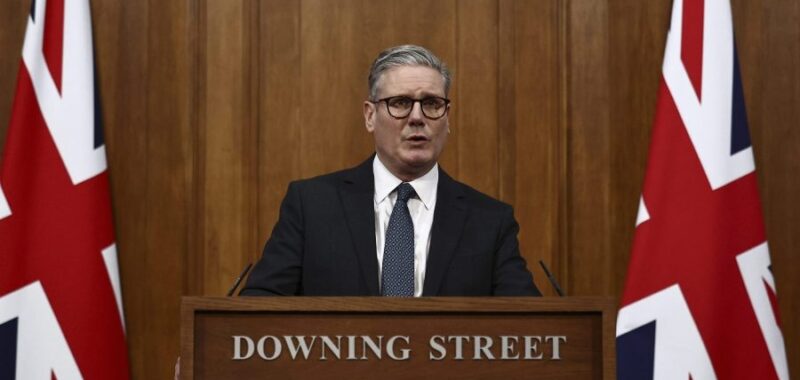
Last year’s U.K. election saw a new period in British politics. The Labour Party under Keir Starmer achieved a resounding victory, securing 411 seats and a majority of 174 in the House of Commons. The triumph marked the party’s return to power after 14 years and signaled a significant shift in the nation’s political direction. Labour’s victory stands in stark contrast to other parts of Europe and the U.S., where center-right parties continue to make sizeable gains.
A combination of apathy and loss of trust in the outgoing Conservative government goes some way to explaining the results, but it is important to remember that Labour’s historic win happened with an exceptionally low and fragile vote share. And, so far, things are not going to plan.
The administration’s honeymoon period was brutally short and unforgiving, even by U.K. political standards. Key opportunities to capture hearts and minds were missed early on. And own-goals billed as “minor” changes to the tax system snowballed into serious issues. The penalizing of farmers led to very real concerns over food chain supply and security. The removal of the winter fuel allowance angered pensioners, who quite rightly point out the hypocrisy of getting elected on false promises.
Perhaps most damaging of all has been the mishandling of various “freebies” given to the Labour Ministers and their families, reinforcing a “them and us” narrative at a time when the cost-of-living crisis is escalating. This has had the effect of calling the prime minister’s personal integrity into question before he has even left the starting blocks.
The truth of the matter is that governing is hard. It involves taking tough decisions, but also recognizing which battles to fight. Farmers and pensioners are not seen by voters as fair game, so over the coming year Starmer’s administration will need laser-like focus to strategically pick the battles amongst the complex array of challenges the U.K. faces.
It isn’t just these issues that will be keeping the prime minister up at night. The threat of Nigel Farage and his Reform Party is knocking at Labour’s front door.
The Conservative Party has the same problem, but, unlike the government, we as the opposition party are afforded some time to come up with a serious and tangible offering that can hold the Reform Party’s unchallenged claims to account. But the Conservatives also don’t have long.
Regional elections are being held in May, when voters decide who governs us locally. They are likely to be difficult for all mainstream parties. As disrupters, Reform could make huge gains and cause big losses, even in places where they do not win outright.
That’s why I believe parties of all colors face one of the most challenging years ahead. No sensible politician can afford to ignore Reform or its supporters. There is a very real possibility that we are seeing the beginning of the end of the two-party system in the U.K.
Conservatives need to find a way to reconnect with voters by pursing policies that are true to traditional values of low taxes and small government and building credibility around delivery. Doing this is the only way to win back hard-earned trust, however gigantic a task that may seem.
Starmer’s administration faces a complex array of challenges in the coming year, too.
Economic stability: Addressing sluggish growth. The task ahead will be to be implementing policies that stimulate the economy while managing public debt. Housing supply and demand-side reforms could be key here.
Public services: Reforming the National Health Service to reduce waiting times and improve efficiency is imperative. Additionally, enhancing education and housing supply, which has been way too low in the U.K. for too long, remains a focal point. Housing also has an enormous impact on economic growth.
International relations: Navigating the U.K.’s relationship with newly elected U.S. President Donald Trump presents diplomatic challenges, particularly concerning trade policies and international cooperation.
Climate policy: Advancing environmental initiatives, including the transition to clean energy and achieving net-zero emissions, is essential to meet both national and global expectations. The challenge of delivering on this, while understanding the pressures on the cost of living and wanting economic growth, will be huge.
The 2024 general election has reset the U.K.’s political landscape, introducing new leadership and, at the same time, altering party dynamics. As the Labour government embarks on its mandate, it confronts significant challenges that will test its capacity to deliver on campaign promises and address the pressing needs of voters. The coming years will be pivotal in shaping the U.K.’s trajectory, both domestically and on the international stage.
Brandon Lewis was lord chancellor and secretary of state for justice in September and October 2022. He was previously secretary of State for Northern Ireland from February 2020 to July 2022.

